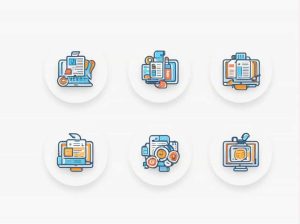Artificial Intelligence (AI) tools are transforming education but they also raise concerns about academic integrity. Many universities now use AI detection software to identify content that might be generated by AI. If your university accuses you of using AI it can be a stressful experience.
Understanding your rights the evidence required and the steps to take can help you respond effectively. This topic will guide you through handling AI-related accusations in academia.
1. Why Universities Are Concerned About AI Use
A. Academic Integrity Policies
Most universities have strict plagiarism and originality policies. With AI-powered writing tools becoming common institutions worry that students might submit work they did not fully create.
B. AI Detection Software
Many universities use tools like Turnitin AI detection to identify AI-generated text. However these tools are not always accurate and can misclassify human-written work as AI-generated.
C. Ethical and Educational Issues
Some professors believe that using AI in academic work undermines critical thinking and learning. They worry that students may rely too much on AI instead of developing their own writing and research skills.
2. What Happens When You’re Accused of Using AI?
A. Notification of Allegation
If your university suspects AI use you may receive:
- An email from your professor or the academic integrity office.
- A request for a meeting to discuss your work.
- A report with AI detection results.
B. Possible Consequences
Depending on the university’s policies consequences of confirmed AI use might include:
- Warnings or required resubmission of the assignment.
- Grade penalties or failing the assignment.
- Academic probation or suspension in severe cases.
C. Your Rights as a Student
You have the right to:
- See the evidence that led to the accusation.
- Defend your work with supporting materials.
- Appeal any unfair decision through formal university channels.
3. How to Prove Your Work Is Original
A. Provide Drafts and Notes
One of the best ways to prove you wrote the work yourself is by showing:
- Rough drafts with timestamps.
- Handwritten notes or outlines.
- Screenshots of your writing process in Word or Google Docs.
B. Explain Your Writing Process
Be prepared to walk your professor through your thought process:
- How did you research the topic?
- What sources did you use?
- How did you develop your arguments?
C. Show Writing Style Consistency
If you’ve submitted other assignments before your professor can compare writing styles. Significant differences might raise concerns but similarity to past work can support your case.
D. Request a Live Writing Assessment
If needed offer to write a short essay in real time. If you can produce similar work without AI it proves your writing ability.
4. How to Respond If You’re Wrongfully Accused
A. Stay Calm and Professional
Avoid getting defensive or angry. Instead remain calm respectful and cooperative when discussing the accusation.
B. Request More Details
Ask the professor or academic office to explain:
- What AI detection tool was used?
- What percentage of AI content was detected?
- Are there specific parts flagged as AI-generated?
C. Challenge AI Detection Results
AI detection software is not 100% reliable. If you are wrongly accused explain:
- Many AI checkers produce false positives.
- Some tools cannot distinguish human-like writing patterns.
- Detection results alone should not be considered final proof.
D. Submit an Official Appeal
If you are penalized unfairly check your university’s appeal process. In your appeal include:
- Drafts and notes as evidence.
- Statements from classmates or tutors who saw you work on the assignment.
- Research on AI detection flaws to question the software’s accuracy.
5. Preventing Future AI-Related Accusations
A. Use AI Responsibly
If AI tools are allowed use them ethically:
- Generate ideas but write in your own words.
- Cite sources properly if AI helps with research.
- Avoid copying AI-generated content directly.
B. Communicate with Your Professors
If you are unsure about AI use in assignments:
- Ask your professor for guidelines.
- Clarify what is acceptable and what is not.
- Follow university policies on AI usage.
C. Develop Your Writing Skills
Relying on AI too much can hurt your critical thinking and academic growth. Improve your skills by:
- Practicing writing regularly.
- Using grammar tools like Grammarly instead of AI generators.
- Reading academic sources to improve your vocabulary and style.
Being accused of using AI in university can be frustrating but it’s important to respond calmly and provide evidence of your originality. Understanding how AI detection works knowing your rights and preparing a strong defense can help you clear your name.
To prevent future accusations use AI ethically improve your writing skills and communicate openly with professors. Universities are still adapting to AI in education so staying informed and responsible will help you navigate these challenges effectively.



